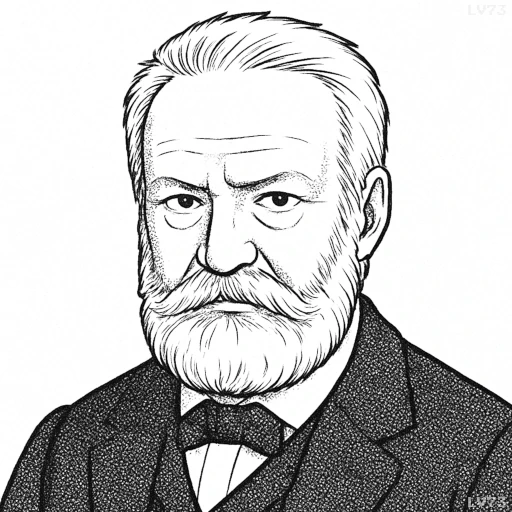“The greatest happiness of life is the conviction that we are loved; loved for ourselves, or rather, loved in spite of ourselves.”

- February 26, 1802 – May 22, 1885
- Born in France
- Author, poet, playwright
table of contents
Quote
“The greatest happiness of life is the conviction that we are loved; loved for ourselves, or rather, loved in spite of ourselves.”
Explanation
In this quote, Victor Hugo speaks to the profound joy that comes from the feeling of being loved. He suggests that the deepest and greatest happiness comes not from material wealth or success, but from the conviction that we are loved for who we truly are, including our flaws and imperfections. Hugo acknowledges that love, in its truest form, is not conditional—it is not about being loved because of our virtues or accomplishments, but about being loved despite our faults. This unconditional love brings a sense of security, belonging, and peace, as we realize that we are accepted for who we are, without the need for perfection.
Hugo’s words reflect his belief in the transformative power of love. Being loved, especially in spite of our imperfections, gives us a sense of value and worth. It is a reminder that love is not about fitting into idealized expectations, but about being cherished for our authentic selves, flaws and all.
In modern terms, this quote highlights the unconditional nature of true love, which is one of the greatest sources of happiness. It emphasizes that love provides a sense of peace and fulfillment by allowing us to be vulnerable and accepted as we are. It invites us to appreciate the love that comes into our lives, not because we deserve it based on our actions or accomplishments, but because we are simply worthy of love as human beings.
Would you like to share your impressions or related stories about this quote in the comments section?





